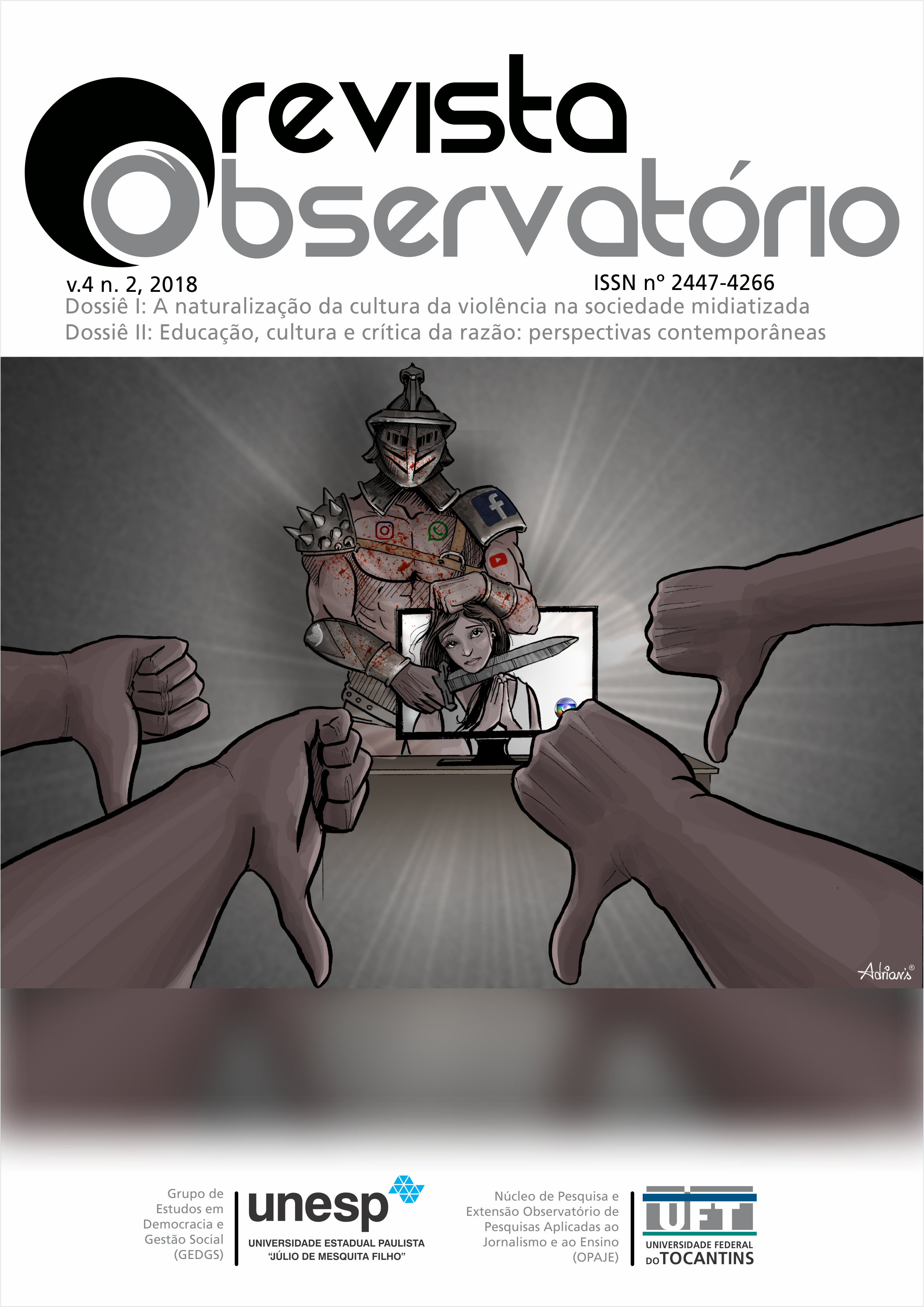THE POLITICAL MILITANT PROOF OF DIFFÉREND
DOI:
https://doi.org/10.20873/uft.2447-4266.2018v4n2p973Keywords:
Ativista, Lyotard, différend, FilosofiaAbstract
This paper presents an example of the concept of différend, original and paradigmatic: the case of Jean-François Lyotard himself, which we can call "autobiographical", to a certain extent. This case reports the intellectual, practical and affective challenge that Lyotard suffered from his withdrawal from political militancy, in this case Marxism, and the concomitant loss of friends of militancy. Lyotard engaged in political activism in 1954, when he took part in the practical and theoretical activities of the group that published in France the journal Socialisme ou Barbarie. He has been a member of this Marxist group for twelve years. Political militancy was seen by the group as a demand for existential engagement. This existential engagement required a specific way of living for all. That is to say, that the meaning of a life of political activist was inseparable from his way of thinking and acting in the war between the exploiters and the exploited. But the occurrence of an unexpected event will cause a fissure at the center of this existential engagement. This change will come about because of a sense of suspicion about the legitimacy of Marxist discourse. This feeling opens a wound in the militant, the extent to which he begins to suspect the "validity of the Marxist discourse in understanding the changes of the contemporary world." This feeling point out that there is "something" which he will name a posteriori différend, that is: a kind of contradiction or conflict that is irreducible to the dialectic, even Marxist. And it is precisely the search for this "something" that will work the militant, that is, it will require a new transformation of itself. What interests us here in particular is the way in which Lyotard works this fissure, this pain of the loss of legitimation and consequently of the friendship of the militant comrades. Unforgivable (in the eyes of fighting friends) and irreparable loss, hat will force him to put in new terms the principle that guides his way of thinking and living.
KEYWORDS: Activist; Lyotard; différend; Philosophy.
Downloads
References
FOUCAULT, M., François Ewald, Alessandro Fontana, et Frédéric Gros. L’herméneutique du sujet: cours au Collège de France, 1981-1982. Hautes études. Paris : Gallimard Seuil, 2001.
—. Frédéric Gros, François Ewald et Alessandro Fontana. Le Courage de la Vérité. Le gouvernement de soi et des autres II. Cours au collège de France. 1984. Hautes études. Paris : Gallimard Seuil, 2009.
—. Henri-Paul Fruchaud, et Daniele Lorenzini. L’origine de l’herméneutique de soi: conférences prononcées à Dartmouth College, 1980. Philosophie du présent. Paris : J. Vrin, 2013.
—. Subjectivité et vérité: cours au Collège de France, 1980-1981. Hautes études. Paris : EHESS Gallimard Seuil, 2014.
LYOTARD, J-F. Dérive à partir de Marx et Freud. 10-18 754. Paris : Union générale d’éditions, 1973.
—. Instructions païennes. Débats. Paris : Galilée, 1977.
—. Le différend. Collection Critique. Paris : Les éd. de Minuit, 1983.
—. Pérégrinations : loi, forme, événement. Débats. Paris : Galilée, 1990.
—. Rudiments païens: genre dissertatif. Continents philosophiques 6. Paris : Klincksieck, 2011.
PRADO, P. « Le sentiment du différend ou la critique de raison communicationnelle » in Prado, P., Cany, B., Poulain, J. (org.) Passages de Jean-François Lyotard : rencontre internationale, Paris, 14-17 octobre 2009. Paris : Hermann, 2011.
—. « La dette d’affect », in L’exercice du différend – J.-F. Lyotard, Actes du Colloque international org. par D. Lyotard, J.-Cl. Milner et G. Sfez, Paris : Collège international de philosophie / PUF, 2001.
Downloads
Published
How to Cite
Issue
Section
License
[PT] Autores que publicam nesta revista concordam com os seguintes termos:
1. Autores mantém os direitos autorais e concedem à revista, sem pagamento, o direito de primeira publicação, com o trabalho simultaneamente licenciado sob a Creative Commons Attribution License (CC BY-NC 4.0), permitindo o compartilhamento do trabalho com reconhecimento da autoria do trabalho e publicação inicial nesta revista.
Leia todos os termos dos direitos autorais aqui.

